Dorset coasteering victim's fitness not checked, coroner says
- Published
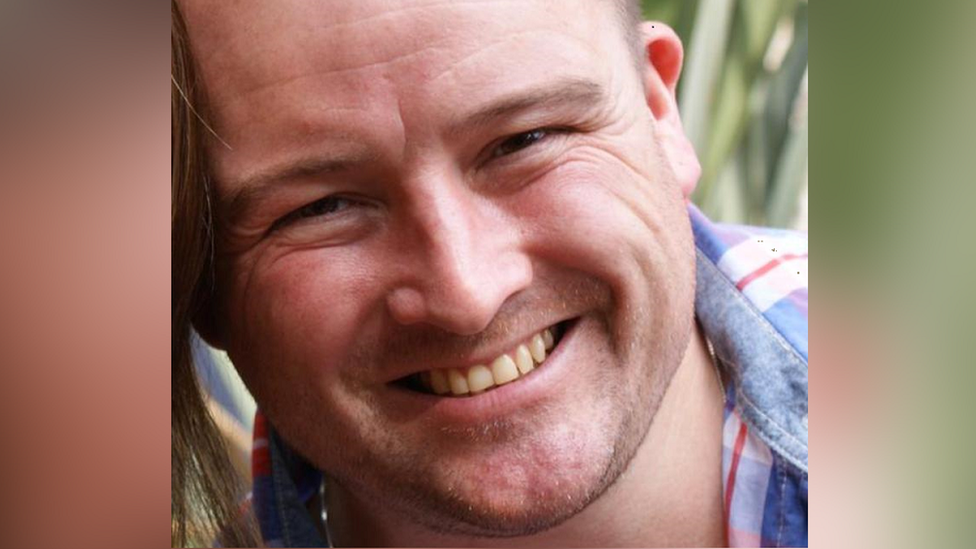
Iain Farrell died after taking his two sons on a coasteering trip
A father of two died on a commercially-run coasteering trip after his swimming ability and fitness were not fully checked, a coroner has said.
Iain Farrell, 49, drowned in high seas on an outing with his sons near Swanage, Dorset, in May 2019.
Mr Farrell was swept into the sea by a wave, an inquest previously heard.
In a Report to Prevent Future Deaths, Dorset coroner Brendan Allen said coasteering clients should be fully informed about the physical demands.
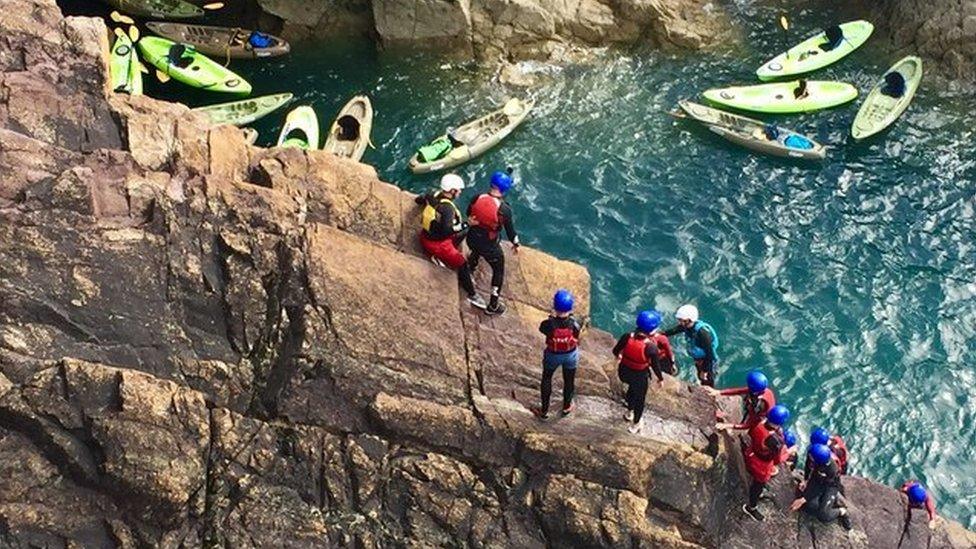
Coasteering involves climbing and swimming on a rocky coastline (generic image)
Mr Farrell, who was a weak swimmer, joked with his group's lone instructor about his impaired ability immediately prior to the session at Hedbury Quarry on 26 May, the inquest heard.
The father of two, from Dorney in Buckinghamshire, struggled to cope with challenging sea conditions, the coroner was told.
He was towed by the instructor to a ledge but was washed back into the sea by a wave, the inquest heard.
He then inhaled water as he struggled in an inlet and never regained consciousness, the coroner was told.
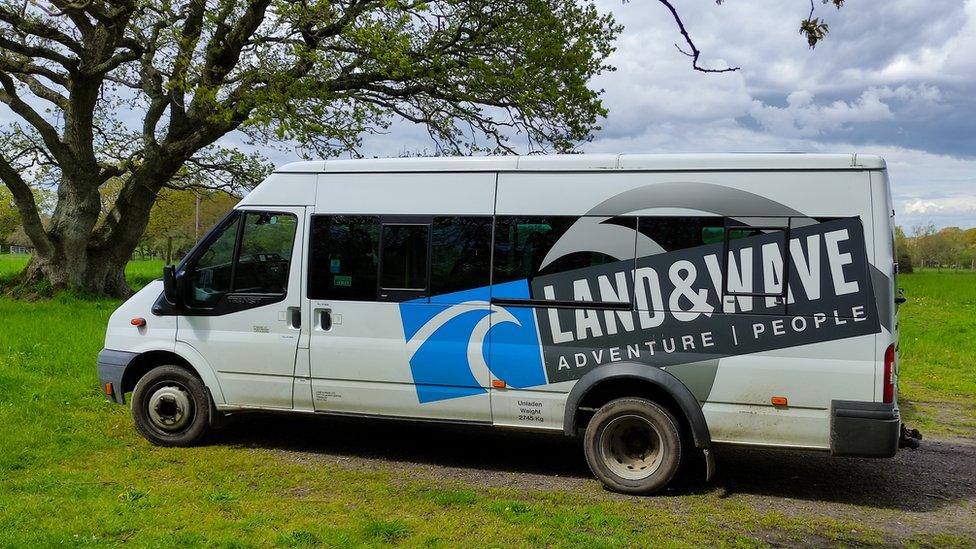
The trip was organised by adventure activity firm Land & Wave
The other eight swimmers, including Mr Farrell's teenage sons and two other children, were left drifting until they were rescued by a lifeboat.
In a narrative conclusion, the inquest jury said his death was the result of misadventure.
Activities firm Land & Wave, which organised the trip, told the court it was not necessary for guides to ask participants about their sea swimming confidence, to carry a VHF radio or to work with an assistant.
However, Mr Allen said prospective clients should be fully screened.
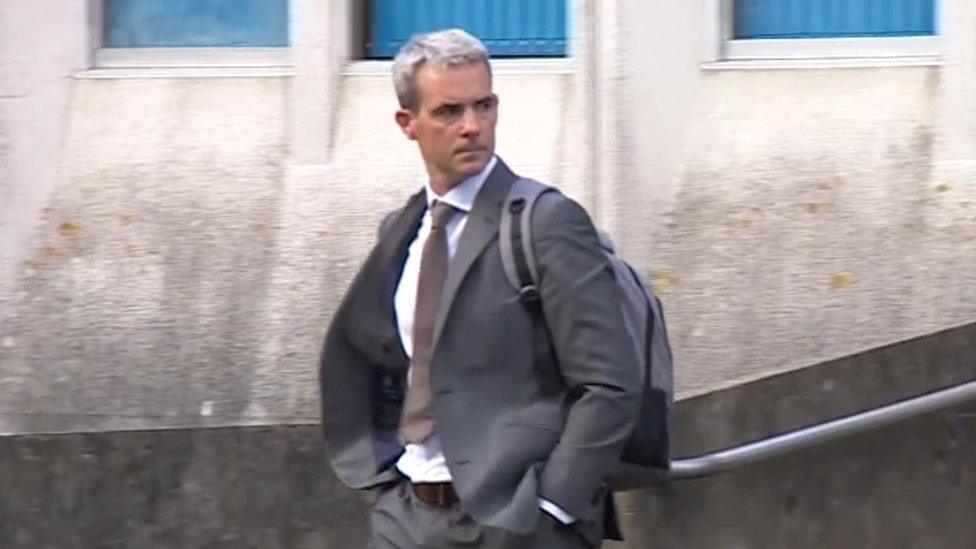
Former Land & Wave director David Mutton gave evidence at the hearing
His report said: "There was no assessment of swimming ability or water confidence during the booking process for coasteering, which may have given an indication to Mr Farrell about the full nature of the experience, nor was he asked about his physical fitness."
The coroner added that guides should usually work in pairs and have a VHF radio or phone "within immediate reach" rather than on the shore.
Mr Allen said coasteering firms had no regulatory body and the safety advice should be added to the voluntary National Coasteering Charter.

Follow BBC South on Facebook, external, X, external, or Instagram, external. Send your story ideas to south.newsonline@bbc.co.uk.
Related topics
- Published5 October 2023

- Published29 September 2023

- Published20 September 2023

- Published19 September 2023
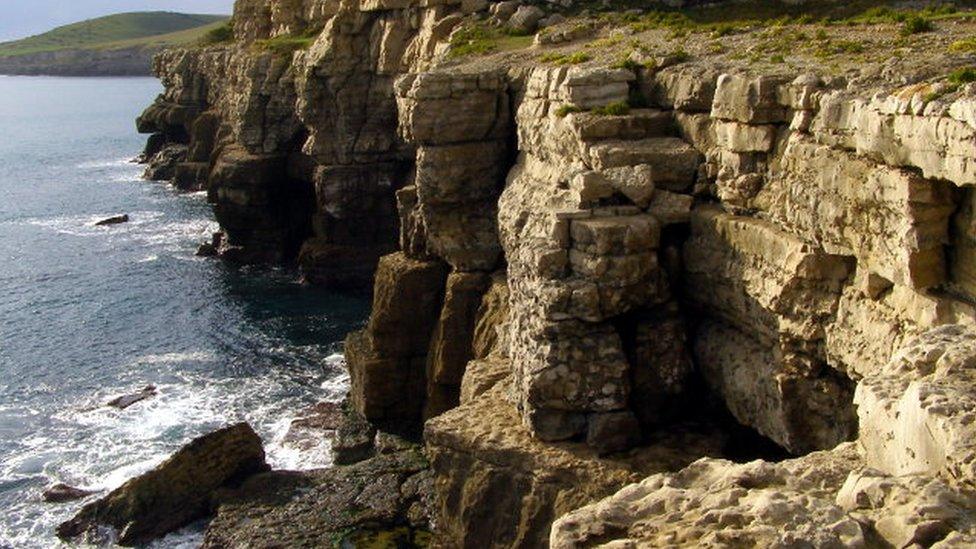
- Published18 September 2023
